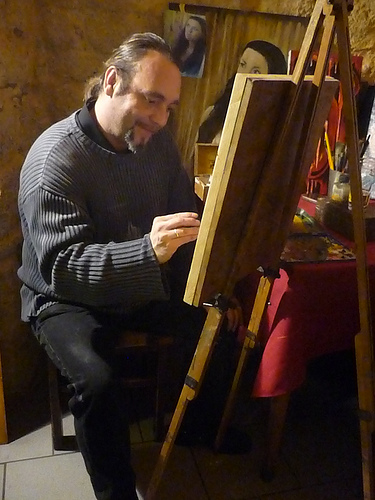Published on
Training Or Development?

Well where do you start with training and development? Let me start with the trainer or even the developer. Developer is not a term we would use much in the UK but for me it sums up the roll more adequately than ‘Trainer’. I am a firm believer that to be successful in this role you have to have excellent interpersonal and communication skills and, of course, presenting skills. To be able to capture the audience and have them eating out of the palm of your hand. To engage them and include them and most of all to teach them. It is a fine art and one we often overlook. How many times have you been in a lecture or a workshop and have been bombarded by data, facts and figures that rarely stick? How many times have you listened to a trainer ramble on about how much the facts and figures matter? BUT! How many times have you listened with intent to a developer who will challenge your thought processes? Who will engage your thoughts on new processes, new ways of working without bombarding you with facts and figures you will probably never use? Yes ‘The Developer’ is someone to be treasured. There’s a saying, ‘You never forget a good teacher’. Think about it and I’m sure you’ll agree that person was a ‘Developer’.
We can all learn facts, figures and processes. Some of us can quote and reference methodologies and outcomes. But what about the processes behind them? Well that is when we call in the specialist, the developer. When I am running a program of work with students I like to get to know a little about them. I ask each person to give a five-minute talk on something they like, anything. Then I open it up to the rest of the group to ask them questions. It goes beyond the conventional ice breakers that give you a name and a little history about yourself. It introduces you as a person and not as a student. This is a huge step to gain that initial trust and buy in. The start of development.
What I also do is ask everyone in the group if they really want to be there. If they say ‘no’ they are asked to leave. And of course we have to make it comfortable. I recall a group I delivered a course to in London. When they arrived I greeted them all with tea, coffee, Danishes, etc. Initially, not one person accepted a drink or a Danish. Then I got everyone to bring their chairs and come and sit in a group with me. I asked them one by one, their name and if they wanted tea, coffee and water etc. In 10 minutes we were all drinking and eating something. Food and drink is a big part of most people’s socialising and communication in my part of town (Sunderland). It opens up so many doors and breaks down so many walls. The outcomes I had from the group and subsequent groups were massive. So take an interest in the people around you, keep it comfortable.
Top ten tips to improving training/learning and development:
- Keep it interesting and relevant
- Keep everyone engaged
- Group participation
- Give analogies on the groups level
- Don’t overload with unnecessary data
- Don’t do death by PowerPoint
- Ensure you have sufficient discussion time on each subject
- Don’t run it like a board meeting where everyone’s fixed to their seats
- Make the important bits fun
- If you’re the developer…enjoy what you’re doing
Author Perspective: Business



